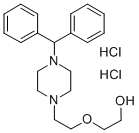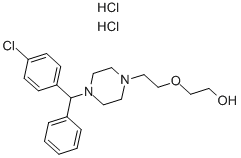Hydroxylammoniumchloride , 99% , 5470-11-1
Synonym(s):
Hydroxylamine hydrochloride;Hydroxylammonium chloride;Hydroxylammonium Chloride, Hydroxyl Ammonium Chloride
CAS NO.:5470-11-1
Empirical Formula: NH2OH·HCl
Molecular Weight: 69.49
MDL number: MFCD00051089
EINECS: 226-798-2
| Pack Size | Price | Stock | Quantity |
| 100g | RMB39.20 | In Stock |
|
| 500g | RMB86.40 | In Stock |
|
| 2.5kg | RMB332.00 | In Stock |
|
| others | Enquire |
PRODUCT Properties
| Melting point: | 155-157 °C (dec.)(lit.) |
| Density | 1.67 g/mL at 25 °C(lit.) |
| bulk density | 900kg/m3 |
| vapor pressure | 0.054 Pa (50 °C) |
| storage temp. | Store at +15°C to +25°C. |
| solubility | 470g/l |
| form | Liquid |
| color | White to off-white |
| PH | 2.5-3.5 (25℃, 50mg/mL in H2O) |
| Water Solubility | 560 g/L (20 ºC) |
| Sensitive | Hygroscopic |
| Merck | 14,4828 |
| BRN | 3539763 |
| Stability: | Substances to be avoided include strong oxidizing agents. Heating above 115 C may cause explosion; do not store above 65C. Moisture and air sensitive. |
| InChIKey | WTDHULULXKLSOZ-UHFFFAOYSA-N |
| LogP | -0.810 (est) |
| CAS DataBase Reference | 5470-11-1(CAS DataBase Reference) |
| EPA Substance Registry System | Hydroxylamine hydrochloride (5470-11-1) |
Description and Uses
Hydroxylamine hydrochloride is a reducing agent that is routinely used for the deacetylation of SATA to form free sulfhydryls (Figure 1), for cleavage of protein cross‐linkers that contain carbonyl groups (i.e. EGS) and for mutagenesis of plasmid DNA.
Hydroxylamine converts aldehydes and ketones (carbonyls) to their oxime derivative in weak bases, therefore cross‐linkers and other compounds with carbonyl groups are cleavable with Hydroxylamine hydrochloride.
SATA and SATP are modification reagents that add a sulfhydryl group to primary amines on biomolecules. The initial modification results in the addition of an acetyl‐protected sulfur enabling storage of the biomolecule. To generate a free sulfhydryl the biomolecule is treated with hydroxylamine to remove the protecting acetyl group (see figure).
EGS and sulfo‐EGS are homobifunctional, succinimidyl ester, amine reactive crosslinkers that are resistant to cleavage by denaturants used in SDS‐PAGE conditions, but may be cleaved with hydroxylamine.
Hydroxylamine hydrochloride is a monomoamine oxidase inhibitor. It is used to prepare oximes and hydroxmic acids in organic synthesis. It acts as a copolymerization inhibitor. It can be used to remove bromine and polybromide from a solution during extraction of lignin from lignocellulosic biomass. It is key starting material for the preparation of pharmaceuticals and agrochemicals. It plays a vital role in rubber and plastic industries as an antioxidant, a vulcanization accelerator and a radical scavenger. It is also used as a color stabilizer and emulsion additive in color films.
Safety
| Symbol(GHS) |     GHS05,GHS07,GHS08,GHS09 |
| Signal word | Warning |
| Hazard statements | H290-H302+H312-H315-H317-H319-H351-H373-H400 |
| Precautionary statements | P273-P280-P301+P312-P302+P352+P312-P305+P351+P338-P308+P313 |
| Hazard Codes | Xn,N,E |
| Risk Statements | 22-36/38-43-48/22-50-40-21/22-2 |
| Safety Statements | 22-24-37-61-36/37 |
| RIDADR | UN 2923 8/PG 2 |
| WGK Germany | 3 |
| RTECS | NC3675000 |
| F | 21 |
| TSCA | Yes |
| HazardClass | 8 |
| PackingGroup | III |
| HS Code | 28251000 |
| Toxicity | LD50 orally in mice: 408 mg/kg (Riemann) |




